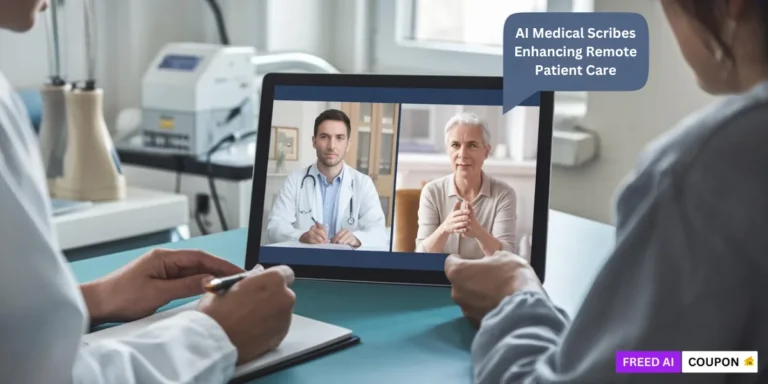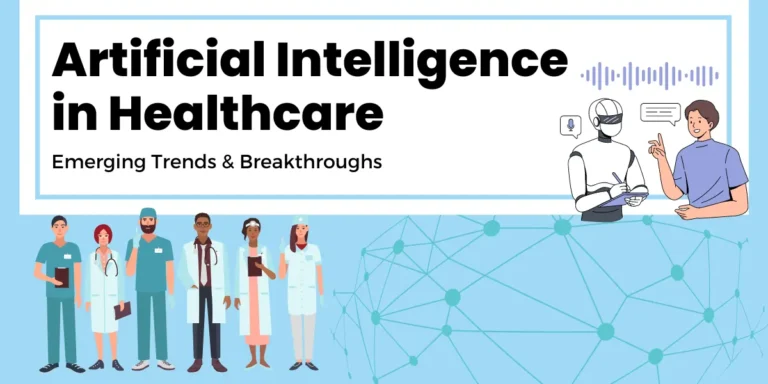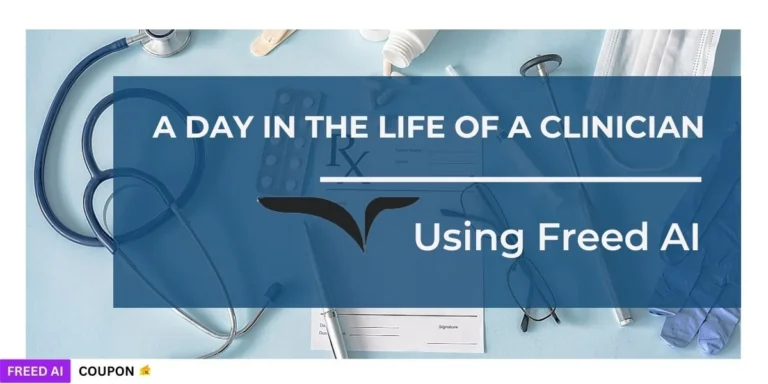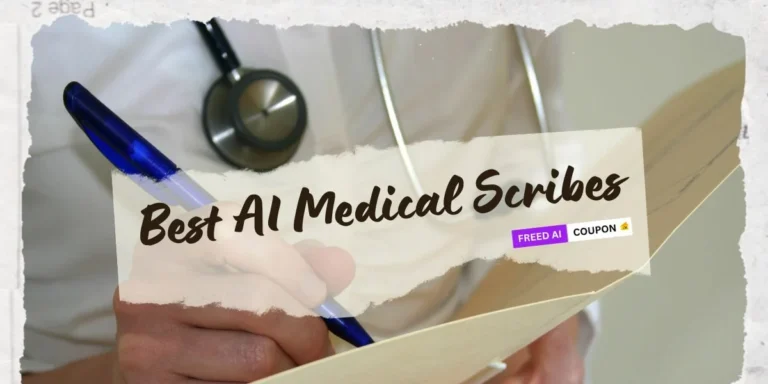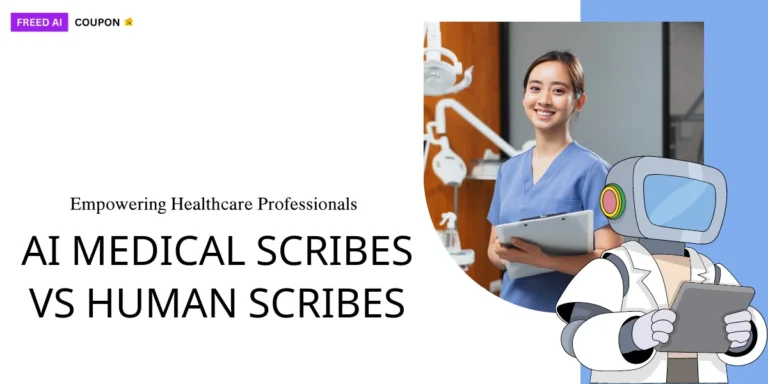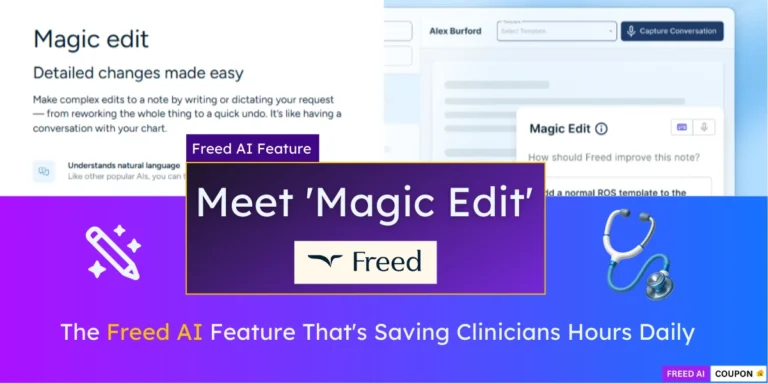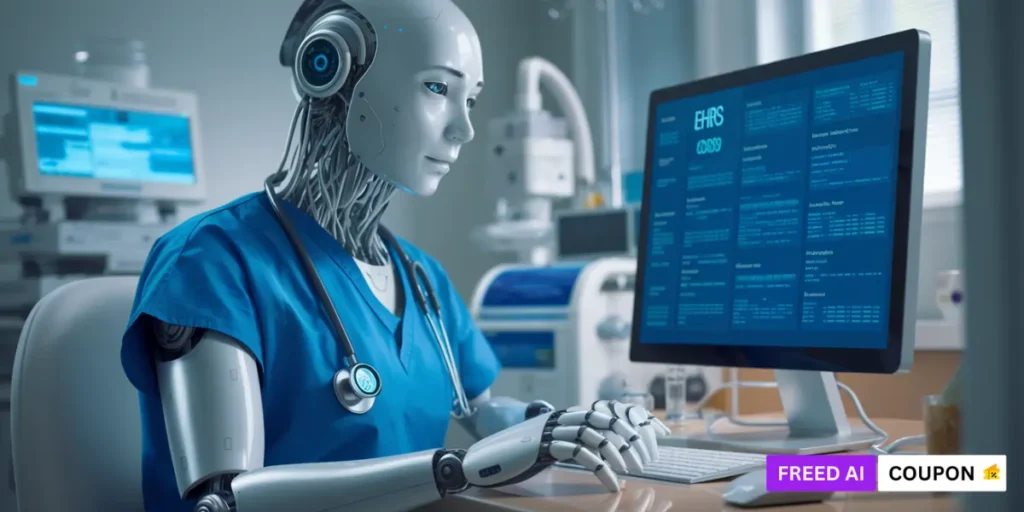
As healthcare ventures into the techy world more, AI is taking a front-row seat in jazzing up electronic health records (EHRs). Enter AI medical scribes – the latest digital sidekicks ready to whip that pile of paperwork into shape while letting docs breathe a bit easier.
These digital assistants leverage natural language processing (NLP) to streamline clinical documentation, addressing the administrative overload faced by healthcare providers faster than you can say “administrative overload”.
With approximately 100,000 scribes supporting nearly a million doctors in the U.S., the AI Medical Scribes EHR Integration is transforming healthcare delivery. A recent study in Northern California demonstrated a significant increase in AI scribe usage, jumping from 20,000 to 30,000 weekly interactions in just seven weeks.
For an inside scoop, check out our piece on ai medical scribes vs. human scribes.
| Key Metrics | Numbers |
|---|---|
| Medical Scribes in America | 100k-ish |
| Docs Using Scribes | Roughly 1 Million |
| AI Scribe Use Boost (Study) | 20k to 30k weekly blips |
While challenges exist, including implementation costs and trust issues, the “human in the loop” approach ensures accuracy. By automating documentation, AI scribes allow clinicians to focus on patient-centered care, improving both efficiency and quality of medical notes.
One standout solution in this space is Freed AI, a cutting-edge AI medical scribe that seamlessly integrates with EHR systems. Freed AI's advanced natural language processing algorithms accurately capture and document patient encounters in real-time, significantly reducing the administrative burden on healthcare providers.
The Current State of Electronic Health Records (EHRs)
Before we sing the praises of AI scribes, let's address the elephant in the room: the current state of EHRs. While EHRs have undoubtedly improved data accessibility and reduced paper waste, they've also introduced new challenges:
These pain points cry out for efficient documentation solutions, and that's where AI medical scribes like Freed AI step in. Freed AI's intelligent algorithms adapt to each healthcare provider's unique documentation style, ensuring a seamless transition and maximum efficiency gains.
AI Medical Scribes: A Game-Changer for EHR Integration
Enter AI medical scribes – the digital cavalry riding to the rescue of overwhelmed healthcare providers. These intelligent assistants leverage the power of artificial intelligence and natural language processing (NLP) to transform the way medical documentation is created and managed.
AI medical scribes are not just tools; they're partners in patient care, freeing up clinicians to focus on what matters most – the human connection in healthcare.
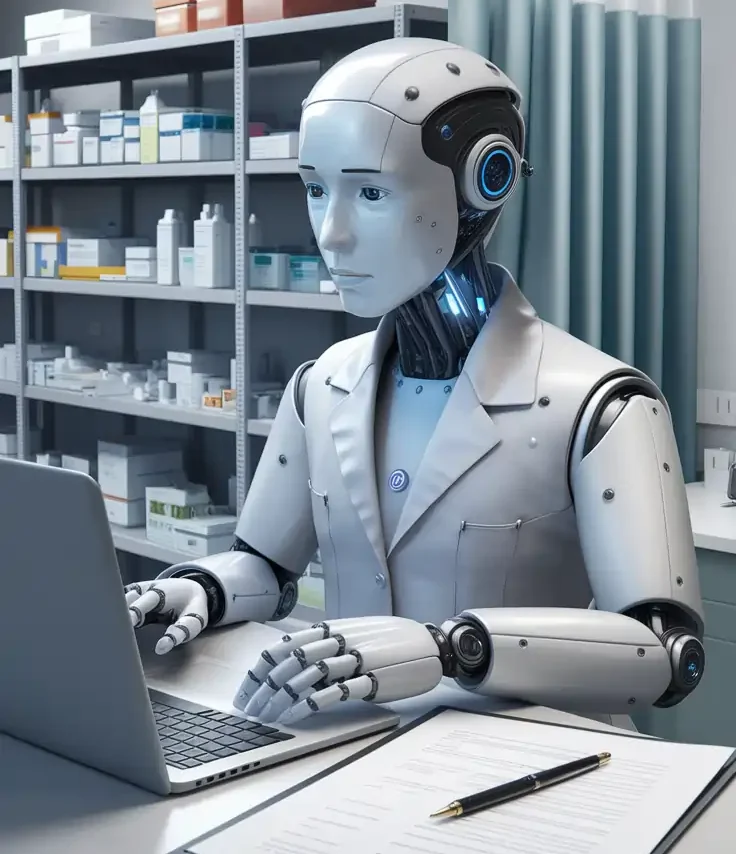
Freed AI takes this partnership to the next level with its user-friendly interface, comprehensive training support, and commitment to data security and HIPAA compliance.
Why Choose Freed AI: Your Ultimate Medical Scribe Sidekick
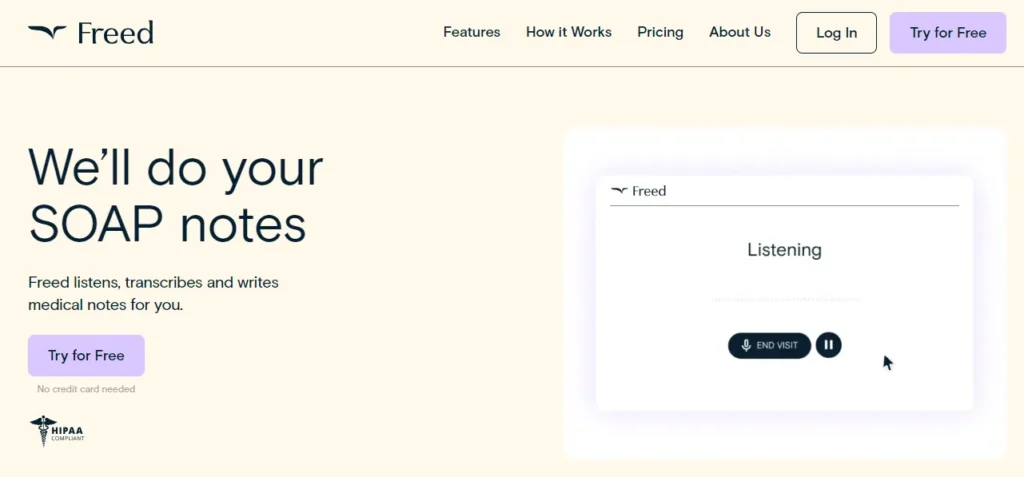
Freed AI stands out in the crowded field of AI medical scribes, offering a seamless integration with electronic health records (EHR) that enhances clinical documentation efficiency. Utilizing advanced natural language processing (NLP), Freed AI accurately captures patient interactions, allowing healthcare providers to focus more on patient care and less on paperwork. Its customizable algorithms ensure that it adapts to the specific needs of various medical specialties, improving both documentation accuracy and workflow automation.
Freed AI also prioritizes data security, adhering to HIPAA compliance and employing robust encryption methods to protect sensitive patient information. With user-friendly interfaces and comprehensive training support, Freed AI makes the transition smooth and effective for healthcare teams. By choosing Freed AI, healthcare providers can expect improved clinical decision-making, increased operational efficiency, and enhanced patient satisfaction, making it a top choice for modernizing healthcare practices.
Benefits of AI Medical Scribes EHR Integration
Merging AI medical scribes with electronic health records (EHRs) is like combining peanut butter and jelly—it's a match made in heaven for healthcare folks. By using smart tech like artificial intelligence and language processing, these virtual scribes take the drudgery out of medical note-taking, making it as smooth as silk.
1. Enhanced Efficiency
AI scribes fit right into EHR systems like a glove, serving up real-time data entry and producing notes while you wait. This puts an end to the headache of manual scribbling, giving medical documents a major glow-up.
| Benefit | Description |
|---|---|
| Real-time Data Entry | Notes are automatically added during chats with patients. |
| Quality Improvement | Medical docs are precise and neatly organized. |
With mundane paperwork out of the way, doctors and nurses can shift to what really matters—patient care. No more paper battles, just more time for healing hands. Freed AI takes efficiency to new heights with its seamless EHR integration and customizable templates.
2. Improved Patient Care
With the scribes handling notes, doctors and nurses can give their undivided attention to patients, leading to more meaningful interactions and bond-building moments. Patients feel heard and understood, which is pure gold for their experience and health outcomes. Freed AI's accurate and comprehensive documentation supports this patient-centered approach.
3. Better Clinical Decision-Making
AI scribes capture crucial details during patient check-ups, lightening the load for medical pros. With better documentation, decisions become smarter and patient outcomes see a boost.
| Benefit | Description |
|---|---|
| Cognitive Support | Accurate recording of key patient info. |
| Decision-Making | Supports savvy clinical choices. |
4. Time and Cost Savings
Using digital or AI-powered scribes is a game changer, cutting down on the time docs spend hunched over keyboards and driving up efficiency. That's not just a time saver—it's a wallet saver, too. Freed AI's affordable pricing and proven ROI make it an attractive choice for healthcare organizations looking to optimize their resources.
5. Compliance and Security
AI scribes can follow the rules to a tee, keeping up with healthcare standards and being good rule-followers. Freed AI prioritizes data security and HIPAA compliance, giving healthcare providers peace of mind while revolutionizing their documentation processes.
Bringing AI scribes onboard with EHR systems isn’t just smart—it’s revolutionary for the medical biz.
Case Studies: Success Stories in Healthcare Settings
Best Practices for Successful Integration
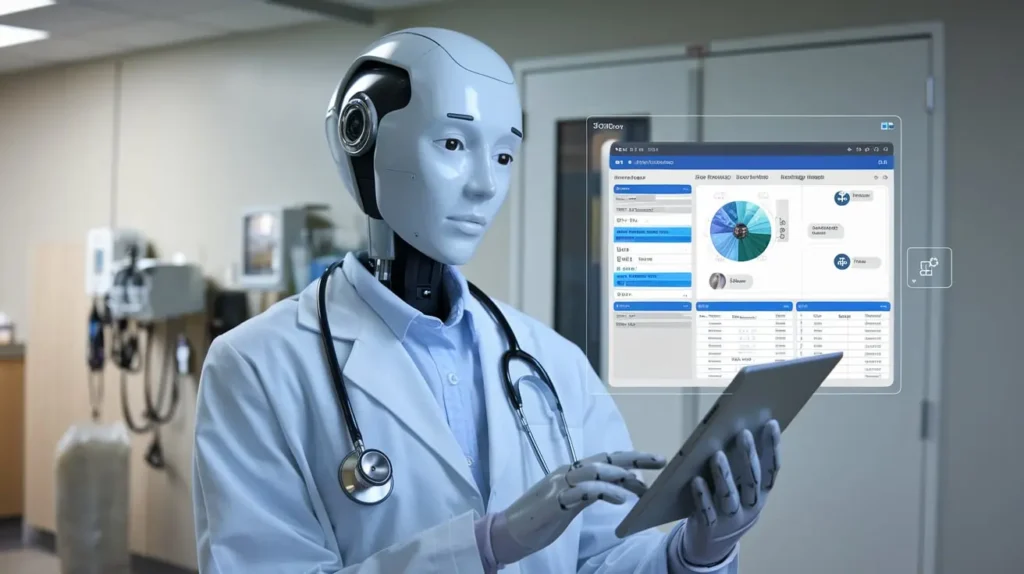
Bringing AI medical scribes into the fold with electronic health records (EHR) isn’t just a plug-and-play thing; you need a good game plan to make it work smoothly and get those medical magic benefits. Let’s chat about making that tech transition smoother than a well-oiled stethoscope.
| Practice | Benefit |
|---|---|
| Compatibility Examination | Smooth EHR sync |
| Custom AI Algorithms | Spot-on documentation and workflow |
| Full-Scale Training | Fully utilizing AI potentials |
| Data Security Focus | Confidentiality fortified |
| Ongoing Observation | Continuous refinement |
| Feedback Utilization | Functionality fine-tuning |
| Tech Allies | Wave of advancement accessibility |
| Growth Readiness | Future-proofing and system flexibility |
With these moves in your playbook, AI medical scribes will slip into your healthcare routine as sleek as a surgeon's knife, enhancing efficiency all around.
Overcoming Integration Challenges
While the benefits are clear, the path to AI scribe integration isn't without its hurdles. Common challenges include:
Freed AI understands these challenges and works closely with healthcare organizations to ensure a smooth, successful integration. Their team of experts provides guidance and support every step of the way, from initial assessment to ongoing optimization.
Conclusion
The integration of AI medical scribes with EHR systems represents a transformative leap forward in healthcare documentation. By automating the tedious aspects of record-keeping, this technology empowers healthcare providers to refocus on what matters most – patient care.
As we stand on the brink of this AI-powered revolution, the potential for improved healthcare delivery is immense. From enhanced efficiency and accuracy to better patient outcomes and provider satisfaction, the benefits are clear and compelling.
For healthcare providers looking to stay ahead of the curve, the message is clear: embracing AI medical scribes isn't just an option – it's a necessity for those who wish to thrive in the evolving landscape of modern healthcare.

